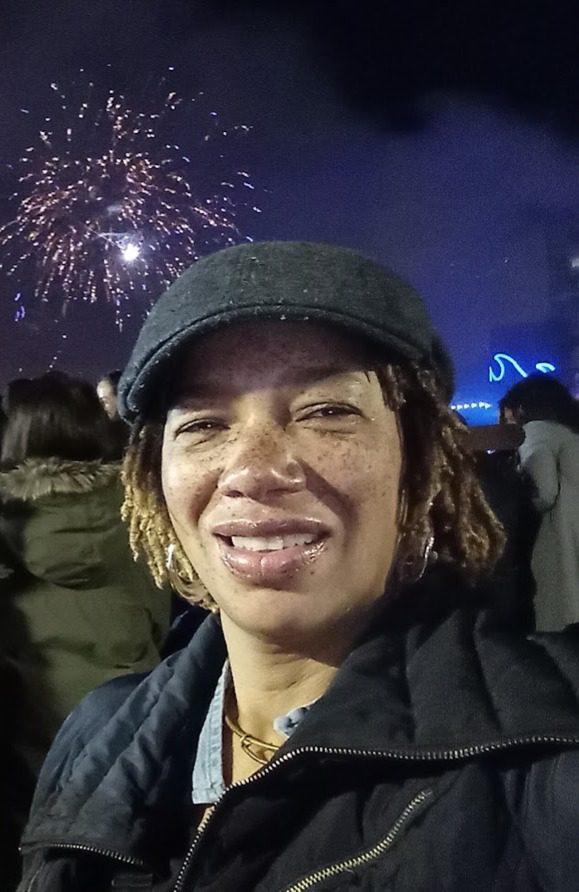That’s What Suckas Do
My sister bought me a “Sucka Free” hoodie in the ‘80s when Yo! MTV Raps was hot. I wore that shirt till the hole under the right arm couldn’t be mended anymore. That was 1999, ten years after Jazzy Jeff and the Fresh Prince won the inaugural Best Rap Performance Grammy. At that time, I really believed I was sucka free, that I could spot disingenuous people from miles away.
In 2014, to celebrate fifteen years of being sucka-free, I ordered a customized silkscreen shirt from some Amazon vendor. Like my 1980’s version, the new hoodie had blue bubble letters against a white background. Unlike the 1980s version, the shirt faded the first time I washed it.
That should have been a sign, but I was not paying attention. Instead, I wore the hoodie the day I visited Milton for dinner. Milton was the low-talking, Barry White-sounding, deep-dimpled businessman I meet earlier that year on an Sn Brussels flight headed to Liberia, West Africa. The JFK airport gods gave me thirteen hours to get to know the casually dressed, stocky thirty-something Liberian.
And that’s exactly what I did. While flying over the Atlantic, we played five Scrabble games and chatted nonstop. I told him that I was visiting Liberia for the first time, staying with my first cousin off the Old Road. Turns out, he lived nearby, and we hung out several times during my month-long stay.
Six months after I returned home, I was visiting Milton outside of Philadelphia. He had been back in the States for some time but was heading back to Liberia the next morning. He welcomed me into his cousin’s apartment in King of Prussia, and everything was going great until he asked me to be his girlfriend. We were eating cassava leaf and jollof rice at his cousin’s dining room table that was covered with a pristine white table cloth. I thought I misheard, so between swallowing a chunk of chicken soaked in spicy palm oil and sipping ginger beer, I asked “What did you just say?”
He put his fork down, looked into eyes and said “Tami, I want to you to be my girlfriend.”
My spoon slipped from my grasp and spattered red dots on his cousin’s white table cloth. Each dot multiplied and developed orange outer rings. Those grease rings had me on my feet searching for a cold wet cloth when Milton dipped a napkin into his glass of water and said: “Don’t worry about it, Love.”
My heart pounded. My mind raced. It reverted to Mrs. Smith’s seventh grade Geography class, the only class kids successfully passed sealed heart-shaped love notes. That year, I received three “Will you be mine?” notes, and I checked the “yes” box on each one. Twenty-five years later, I still felt compelled to respond to that kind of proposal with a panicky “yes.”
The front door to the apartment opened, and a shorter version of Milton stepped into the living room. The smooth-skinned man introduced himself as “Milton’s cousin.” I battered him with questions about his day, his work, his apartment, his jollof rice, and his vacation time. By the time I asked how many children he had, he threw up two fingers that looked like a backwards peace sign and headed down the hallway.
I followed him.
I told Milton I needed to use the bathroom. There, I leaned against the cold porcelain sink hoping that an appropriate response to Milton’s proposal would fall from the popcorn ceiling.
When it didn’t, I left the bathroom and feigned a stomachache. My escape was working beautifully until Milton offered to walk me to my car.
When we got to my car, I reached for my door handle, and he put his hand over mine and asked me to slow down. He reminded me that I had not answered his question.
I could still taste the pepper from the casava leaf when he said “Tami?” touched my shoulder and smiled, one deep dimple on display.
“Of course, Milton. I’d be honored.” I pecked him on the lips and got in my car.
That was the last time I saw him. Eight hours later, Milton boarded his flight home to Liberia.
He texted during his layover and when he reached Monrovia. I texted one-word, lethargic responses thinking it’d be easier to fade the relations with Milton with the 5000-mile separation.
It wasn’t.
The guilt was the same. The mask was the same. But the sucka was not the same. All those years I thought the sucka in sucka free were other people. It dawned on me that I was the sucka. Always had been.
Like my new sucka-free hoodie, the relationship faded under my direction. That’s not to say Milton did not put up a fight. He hung in there longer than most, suffering my delayed, threadbare responses to his energetic, detailed messages.
That went on for two weeks, until the 5000-mile relationship dissolved.
NIA CRAWFORD is an instructor who writes from Baltimore and Philadelphia. She’s taught writing to middle schoolers and college students for over 20 years. She’s also been published in Ink Nest Poetry and will be published in Killens Review of Arts in Letters, B O D Y, and Necessary Fiction. Nia is a real estate agent and she loves volunteer work and community-based organizations.
